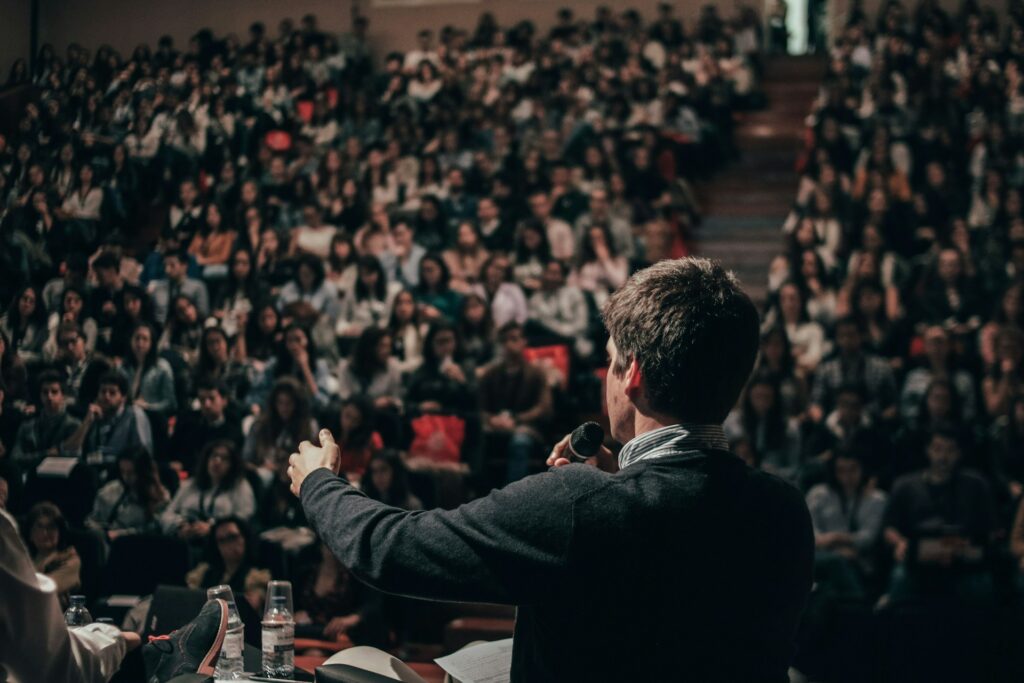
(Rightallegiance.com) – At Benedictine College, a Catholic liberal arts institution in Atchison, Kansas, Harrison Butker, the Kansas City Chiefs kicker, sparked widespread debate with his recent commencement speech. In his address to the graduating class, Butker stated that among the most significant roles for women is that of a “homemaker.” He also expressed strong opposition to abortion rights, Pride Month, COVID-19 lockdowns, and what he termed “the tyranny of diversity, equity, and inclusion.”
Butker, a devout Catholic and father of two, expanded on his beliefs by criticizing what he considers “dangerous gender ideologies” and calling on men to resist the cultural diminishing of masculinity. He particularly emphasized the pressures and falsehoods he believes are directed at women regarding their career ambitions versus the roles of marriage and motherhood.
He said this at the commencement speech. “I want to speak directly to you briefly because I think it is you, the women, who have had the most diabolical lies told to you, how many of you are sitting here now about to cross the stage, and are thinking about all the promotions and titles you’re going to get in your career. Some of you may go on to lead successful careers in the world. But I would venture to guess that the majority of you are most excited about your marriage and the children you will bring into this world.”
During his speech, which has since accumulated over 455,000 views on YouTube, Butker directly addressed the female members of the audience. He suggested that while some may pursue successful careers, most are likely more excited about their future roles as wives and mothers. He cited his wife, Isabelle, as someone who found her true calling in life when she embraced her roles as a wife and mother.
This statement and others made during his 20-minute address prompted a backlash on social media, with critics pointing to the achievements of Butker’s own mother, a clinical medical physicist, as a counterpoint to his views. Additionally, Butker’s comments drew ire from fans of pop star Taylor Swift, who is in a relationship with fellow Chiefs player Travis Kelce. Swift’s fanbase notably includes many women who have become supporters of the NFL.
The controversy intensified when Butker made a reference to Swift’s lyrics in his speech, discussing the problems of undue familiarity, which he claimed could lead to contempt. This reference was met with humorous responses on social media, including a joke about a petition to replace Butker with Swift as the Chiefs’ kicker.
An actual petition demanding Butker’s dismissal from the team for his remarks has garnered significant support, reaching 95,000 signatures. The petition labels his comments as sexist, homophobic, anti-trans, anti-abortion, and racist.
The NFL responded to the controversy with a statement clarifying that Butker’s views do not reflect those of the league. Jonathan Beane, NFL’s senior VP and chief diversity and inclusion officer, emphasized that Butker spoke in a personal capacity.
Butker has publicly shared his religious convictions before, noting in a 2019 interview with the Eternal Word Television Network that he had drifted from his Catholic faith during high school and college before reconnecting with it later. He has also participated in campaigns for Catholic Vote and endorsed a Kansas referendum to restrict abortion rights, which did not pass.
In his speech, Butker also criticized current societal leaders for their roles during the pandemic and for supporting policies like abortion, which he argued are in conflict with Catholic doctrine. He expressed concerns about societal decline, citing procedures like IVF and surrogacy, and broader acceptance of what he described as degenerate cultural values.
His comments have received mixed reactions. While some audience members at Benedictine College applauded, others, including graduate Kassidy Neuner who is planning to attend law school, found the speech degrading, feeling it undervalued their educational efforts.
Public figures and organizations, including musicians and the Los Angeles Chargers, have publicly disagreed with Butker’s statements. Meanwhile, local Kansas City officials and residents have debated his views, with some defending his right to free speech, despite disagreements with his positions.
As the community and broader public grapple with the implications of Butker’s remarks, the conversation around the role of public figures in societal debates continues to evolve, highlighting a divide in beliefs and the challenges of addressing complex social issues in public forums.